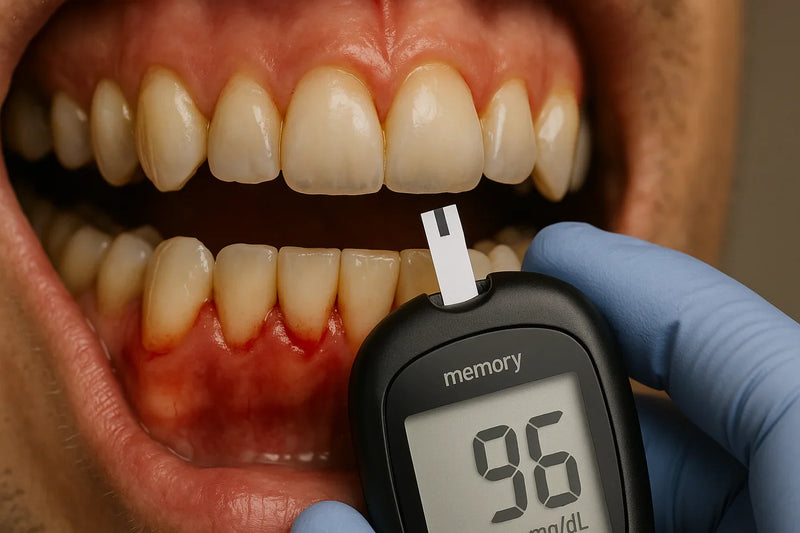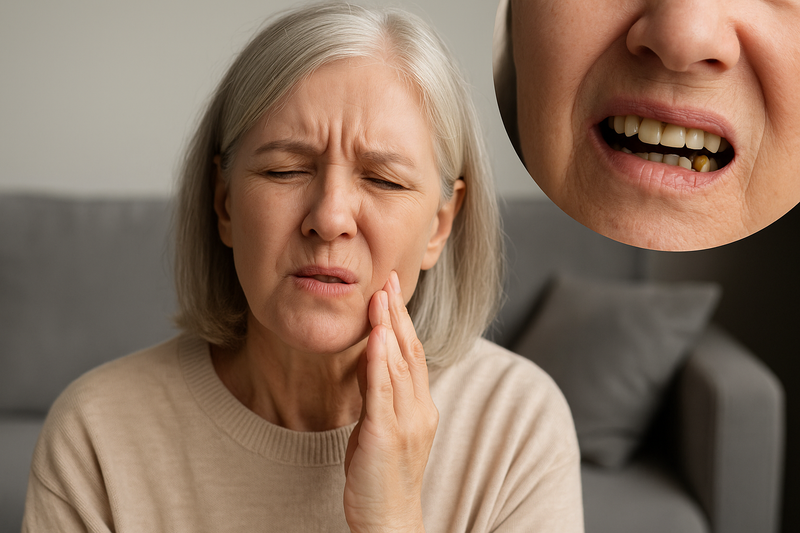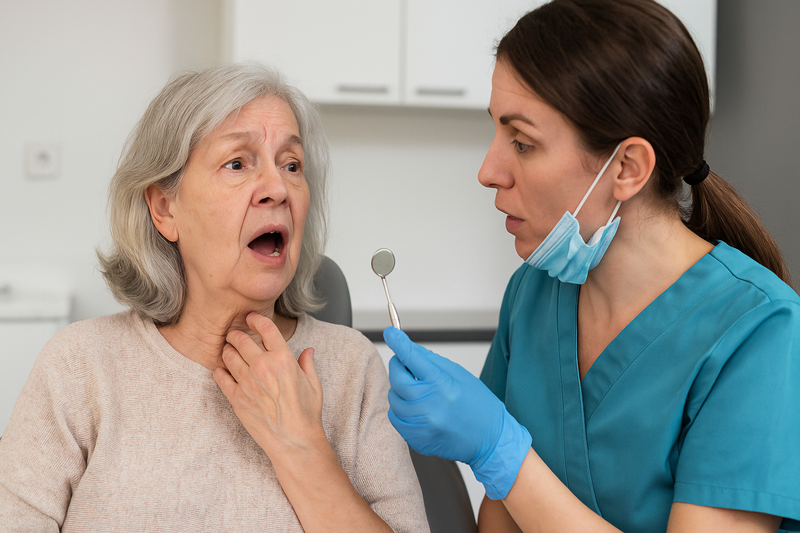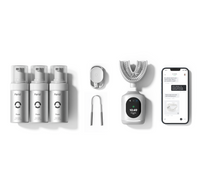
Caring for Oral Health After Stroke: Managing Reduced Tongue Mobility
Essential Takeaways
- Reduced tongue mobility after stroke increases oral health risks, but evidence-based strategies including therapeutic exercises, mechanical cleaning tools, enhanced hydration, and strategic rinsing can effectively maintain oral hygiene and prevent complications.
After a stroke, many survivors experience reduced tongue mobility, which can significantly impact oral health. Understanding how to adapt your oral care routine is crucial for preventing complications and maintaining overall health during recovery.
(Clinical and Experimental Dental Research, 2023)
Why Tongue Mobility Matters for Oral Health
Your tongue serves as your mouth's natural cleaning system. It distributes saliva throughout your mouth, helps balance pH levels, and naturally removes food particles and bacteria from teeth and gums. When stroke affects tongue movement, this natural cleaning process becomes compromised.
Research shows that the tongue plays a crucial role in maintaining oral health by facilitating saliva distribution and mechanical cleaning. When this function is impaired, particularly in older adults and stroke survivors, it leads to poorer oral conditions and increased functional disability.
(Environmental Research and Public Health, 2021)
The Science Behind Post-Stroke Oral Health Risks
Multiple studies confirm that stroke survivors with limited tongue movement face significantly higher oral health challenges:
-
Increased plaque accumulation: Reduced tongue mobility makes it harder to naturally clear food particles and bacteria
(European Stroke Journal, 2018) -
Higher infection risk: Scientific reviews demonstrate increased incidence of oral infections and discomfort in post-stroke patients
(Frontiers in Neurology, 2020) -
Poor oral hygiene outcomes: Stroke survivors consistently show elevated plaque scores compared to healthy individuals
(Nursing Reports, 2023)
These findings highlight why specialized oral care strategies are essential for stroke recovery.
Evidence-Based Strategies for Maintaining Oral Health
1. Therapeutic Tongue Exercises
Research demonstrates that guided tongue and lip exercises can improve tongue strength and function, regardless of age or visit frequency. Work with a speech-language pathologist to develop a safe, effective exercise routine that may include:
- Tongue protrusion and retraction movements
- Side-to-side tongue movements
- Tongue-to-palate pressure exercises
Safety note: Always consult your healthcare team before starting new exercises, especially if you have swallowing difficulties.
2. Mechanical Cleaning Tools
When natural tongue movement is limited, specialized tools become essential:
- Tongue scrapers: Gentle, effective removal of bacteria and debris
- Soft oral swabs: Ideal for sensitive areas and when traditional brushing is challenging
- Modified toothbrushes: Consider electric or adapted handles for easier grip
- Advanced cleaning systems: The Feno Smartbrush™ offers a revolutionary solution with its U-shaped design that brushes all teeth simultaneously in just 20 seconds. With 18,000 bristles (compared to 2,500 on traditional brushes), it provides comprehensive cleaning that may be especially beneficial for those with limited mobility or coordination challenges
3. Enhanced Hydration and Saliva Support
Adequate saliva production is crucial for oral health. Support your mouth's natural defenses by:
- Drinking water frequently throughout the day
- Using sugar-free gum (only if safe for swallowing)
- Considering saliva substitutes if recommended by your dentist
4. Strategic Rinsing Protocols
Simple water rinsing after meals can significantly reduce food particle retention:
- Rinse with plain water after every meal or snack
- Consider therapeutic mouth rinses as recommended by your dental team
- Gentle swishing motions, adapted to your current abilities
Advanced Technology Solutions
For stroke survivors who struggle with traditional brushing techniques or have limited manual dexterity, innovative oral care technology can be game-changing:
Smart Toothbrush Technology: The Feno Smartbrush™ represents a breakthrough in accessible oral care. Its full-mouth cleaning approach in just 20 seconds can be particularly valuable for individuals with:
- Limited arm or hand mobility
- Coordination challenges
- Fatigue during longer brushing routines
- Difficulty maintaining consistent brushing technique
When to Seek Professional Support
Contact your healthcare provider if you experience:
- Persistent bad breath despite improved oral care
- Mouth sores or unusual oral discomfort
- Signs of infection (swelling, pain, fever)
- Difficulty managing oral care routines independently
Consider working with:
- Speech-language pathologists for safe swallowing and tongue exercise guidance
- Dental hygienists experienced with special needs patients
- Occupational therapists for adaptive oral care tools
Supporting Caregivers
If you're caring for a stroke survivor, remember:
- Oral care may require patience and adaptation
- Positioning is important for safety and effectiveness
- Regular dental checkups become even more critical
- Communication with the healthcare team about oral health concerns is essential
Bottom Line
Stroke-related tongue mobility challenges are common, but they don't have to compromise your oral health. With the right combination of professional guidance, adaptive tools, and consistent care routines, you can maintain a clean, healthy mouth throughout your recovery journey. Remember that good oral health supports overall health and can positively impact your quality of life during stroke recovery.
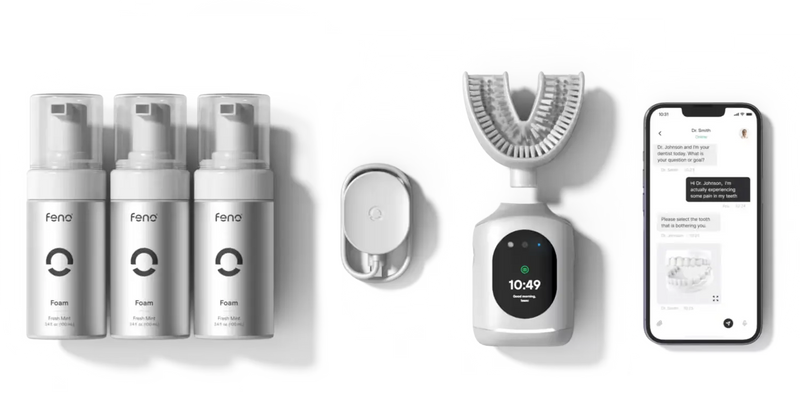
Feno Founders Edition Bundle
Advanced Oral Health in 20 Seconds with the Feno Smartbrush™
Get Yours Now!


